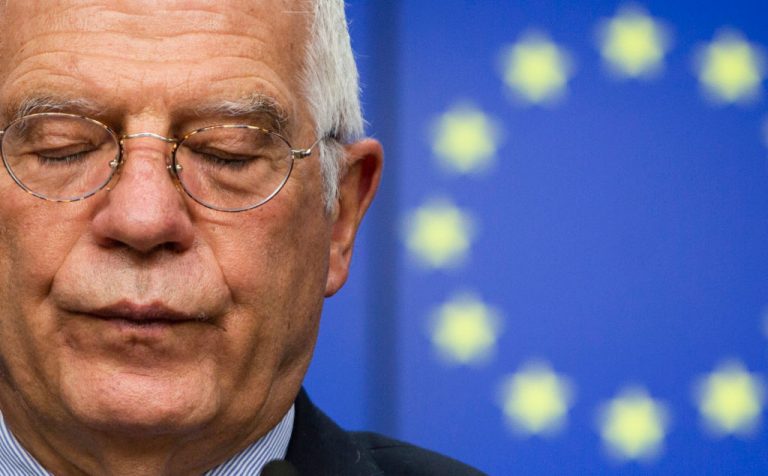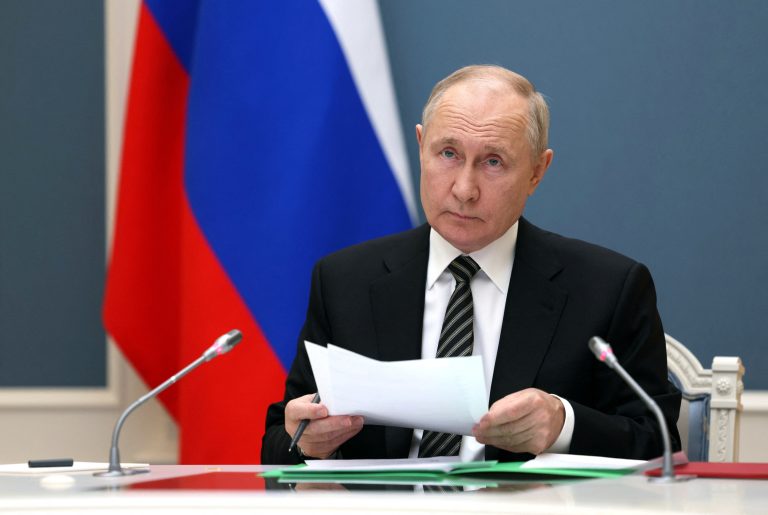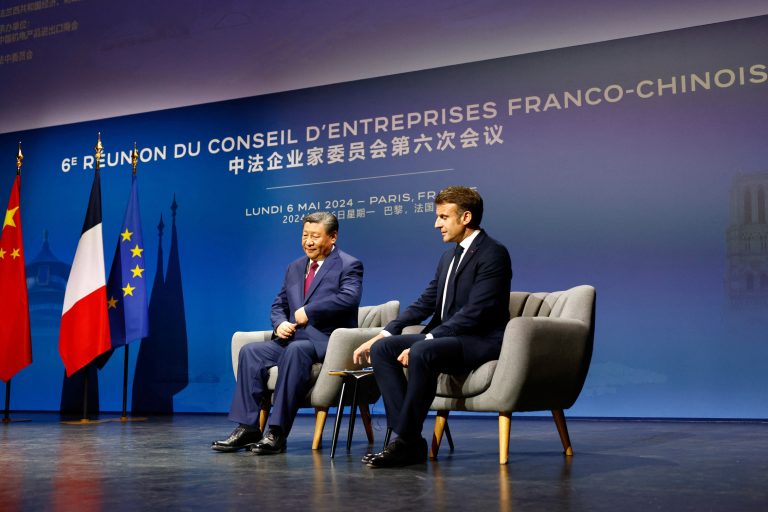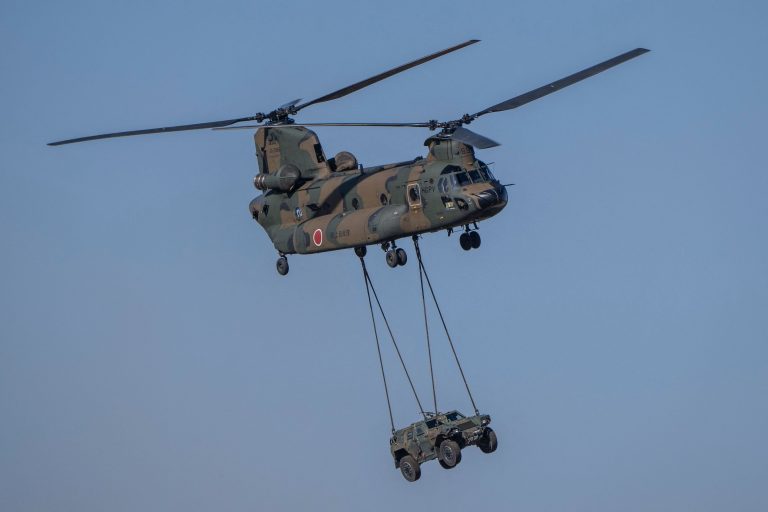News Analysis
As the war between the Russian Federation and neighboring Ukraine shows no signs of heading towards peace, the Chinese government has proven to be a thorn in the side of the U.S. NATO bloc and its allies with its thus-unwavering support of Vladimir Putin.
As the battle to dislodge that thorn is increasingly, albeit quietly, being waged in the public eye, the Parliament of the European Union was told by a top diplomat on April 6 that People’s Republic of China (PRC) President and Chinese Communist Party (CCP) General Secretary Xi Jinping “does have a red line” that, if Russia crosses, would plant a fatal wedge between Xi and Putin.
FURTHER READING:
- NATO Sets Its Gaze on Xi Jinping
- China’s Reaction to Biden-Xi Call Exposes Its Fear of International Pressure Amid Russia-Ukraine War
- US-funded Ukraine Biolab Scandal at the Forefront in Deadly Brinkmanship With Russia
On April 5, NATO Secretary General Jens Stoltenberg delivered a presser where several key issues were addressed in advance of a meeting of NATO Foreign Ministers on the Russia-Ukraine conflict on April 7 and 8.
Success
You are now signed up for our newsletter
Success
Check your email to complete sign up
During statements, Stoltenberg ratcheted up the pressure against Xi’s administration to decouple from neighboring Russia as he highlighted the attendance of NATO Asia-Pacific partners Australia, Japan, New Zealand, and Australia, “Because this crisis has global implications, which concerns us all.”
“We see that China has been unwilling to condemn Russia’s aggression,” Stoltenberg continued. “And has joined Moscow in questioning the right of nations to choose their own path.”
As the Secretary General gave further commentary on “authoritarian powers” who are “pushing back” against the “rules-based international order,” Stoltenberg quickly added that the meeting would be utilized to formulate portions of the organization’s June Strategic Concept policy implementation in conjunction with the Asia-Pac partners.
The point was made perfectly clear, “For the first time, it will also need to take account of China’s growing influence and coercive policies on the global stage. Which pose a systemic challenge to our security, and to our democracies.”
The next day, in an April 6 doorstep statement precluding the start of the meeting, Stoltenberg again reiterated that Strategic Concept policy would be formed with a focus on addressing “the security consequences of Russia’s aggressive actions,” a “shifting global balance of power,” the “security consequences of a much stronger China,” and “challenges Russia and China are posing together to our rules based international order and our democratic values.”
NATO’s change in attitude was quickly accompanied by support from the European Union.
The same day, Josep Borrell, the EU’s High Representative for Foreign Affairs and Security Policy and Vice President of the European Commission, joined the fray while reporting to Parliament on the results of an April 1 video conference meeting between the Xi Administration and EC President Ursula von der Leyen.
Borrell’s speech, which South China Morning Post characterized as “a break in a weeks-long stance during which Borrell has avoided criticising China’s position,” unflatteringly reduced the session to the level of a “dialogue of the deaf.”
“China wanted to set aside our differences on Ukraine, they didn’t want to talk about Ukraine. They didn’t want to talk about human rights and other stuff and instead focus on positive things,” the EU’s top diplomat stated.
“This was not exactly a dialogue, maybe a dialogue of the deaf…we could not talk about Ukraine a lot, and we did not agree on anything else.”
But as Borrell proceeded to tell lawmakers that Xi’s PRC expressed wishes to see peace and deescalation between Russia and Ukraine, he stated that China was nonetheless “avoiding specific commitments or avoiding any sort of line on Russia.”
However, Borrell then gave Parliament the good news: China “does have a red line” that Russia can cross to lose the support of its fellow superpower.
That “red line” is one the diplomat did not tip toe around, “which is weapons of mass destruction.”
While SCMP reported on this crucial portion of Borrell’s address, the statements entirely eluded the wire of many North American publications such as Bloomberg and Newsweek.
Posturing of a dangerous attack on humanity that can be attributed to Vladimir Putin in the eyes of the public and international diplomats is highly alarming in light of the considerable efforts to paint the Russian leader as, in the recent and highly direct words of U.S. President Joe Biden, a “murderous dictator,” “pure thug,” and a “war criminal.”
Since the conflict began, the Russian Federation and Vladimir Putin have been bombarded with accusations of various types of potential war crimes and violations of the Geneva Convention committed in the course of battle.
The less severe of which include the bombing of a hospital and a theatre in the since-captured Mariupol at the beginning and middle of March.
And the claims are not limited to press pundit hawkery.
On March 23, Secretary of Defense Antony Blinken issued a press release where he directly stated, “Today, I can announce that, based on information currently available, the U.S. government assesses that members of Russia’s forces have committed war crimes in Ukraine.”
Also in mid-March, White House Press Secretary Jen Psaki notably told reporters that Putin has a “long and well-documented track record” of utilizing chemical weapons against opponents.”
Only a few days later, Biden told reporters directly that Putin is “also suggesting that Ukraine has biological and chemical weapons in Ukraine…That’s a clear sign he is considering using both of those.”
“He’s already used chemical weapons in the past, and we should be careful of what’s about to come,” Biden continued. “He knows there’ll be severe consequences because of the united NATO front but the point is: it’s real.”
While both establishment media and politicians from all over the world have been quick to do their part to disseminate the narrative, simultaneously, reports of Russian prisoners of war being tortured and murdered and human rights abuses against Ukraine citizens conducted under martial law-induced anarchy by Ukraine’s armed forces have gone largely ignored.
The most recent escalation in the information war were reports of a civilian massacre in Bucha, allegedly discovered by Ukraine after Russia withdrew its troops from the Kiev area for redeployment in a second-stage battle to retake the entire eastern Donbass region after the successful capture of the critical Mariupol area on Ukraine’s Southeastern coast.
Despite the fact that the narrative that multitude of dead civilians discovered, mostly in the streets, clad in white armbands signifying surrender, and usually with their hands bound behind their back was a sin strictly and exclusively committed by Russian troops has serious holes that should be grounds for pause, Bucha has served as April’s vanguard to push for external intervention, a mistake that could quickly lead to nuclear conflict.
On April 3, John Spencer told CNBC’s Ali Velshi in comments on the alleged Bucha war crimes by Russia that, “I’m ready to commit at this moment — unlike I was before this day — to put people in direct contact with Russia, to stop Russia.”
While Spencer is ostensibly only a former U.S. Army Major, blogger Caitlin Johnstone points out that Spencer speaks for The Modern War Institute, a policy think tank funded and operated by the Pentagon.
“Call it peacekeeping. Call it what you will. We have to do more than provide weapons,” said Spencer. “And by ‘we,’ I mean the United States. Yes, we’ll do it as a coalition with lots of other people, but we are the example. So put boots on the ground, send weapons directly at Russia.”
The rhetoric is no joke. Secretary General Stoltenberg himself stated during his April 6 doorstep statement that “we will address the brutal war in Ukraine and we have all seen the atrocities that have been committed in Bucha and other places in Ukraine.”
Stoltenberg did not see the lack of a complete investigation into the incident as cause for pause, “This reveals the true nature of President Putin’s war, and the targeting and killing of civilians is a war crime and therefore, NATO allies are supporting the international efforts to establish all the facts, to investigate, and to make sure that perpetrators are punished.”
On April 5, former U.S. Army Colonel and Pentagon Senior Advisor Douglas MacGreggor told The Dive with Jackson Hinkle that the Bucha story was worthy of reservation, “Whenever you have such unanimity in the American and Western media, and you have such brilliant timing such that a piece of news comes out…like that’s happened in Bucha, it comes out and there’s an enormous explosion, it’s almost volcanic, of hate and criticism and stories supporting all of this against the Russians that bursts on the scene almost immediately, all at roughly the same time.”
MacGreggor continued, “And all the retired general officers come on and with no exceptions say virtually all the same thing. When that happens, I step back and I’m extremely suspicious and very skeptical because I’ve seen this before.”
For the citizens of the world, they can only watch and hope that the “red line” of “weapons of mass destruction” referred to by Josep Borrell isn’t utilized as a tool to force Xi Jinping’s hand on his alliance with Putin while the CCP’s boss vies for an unprecedented third term later this year.
















